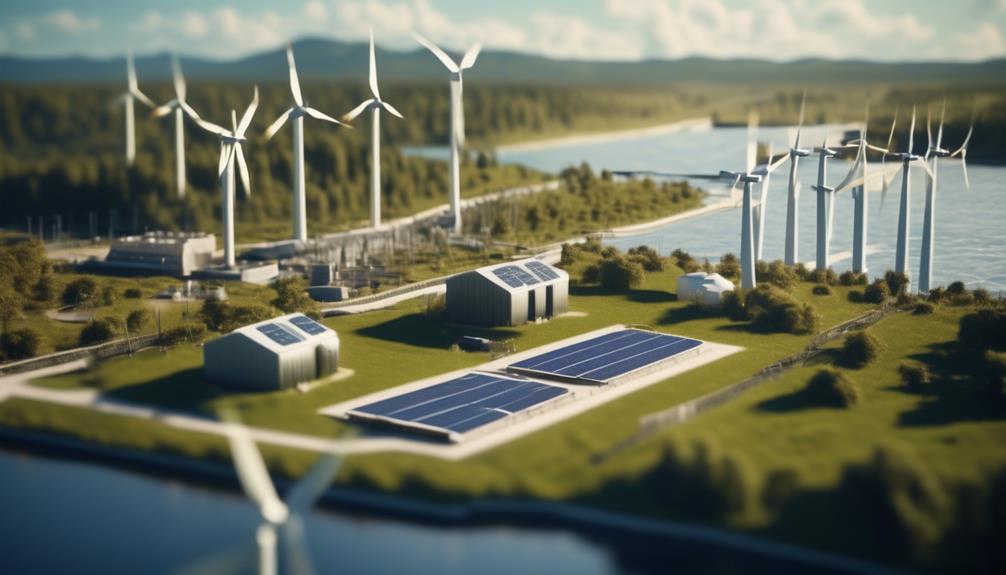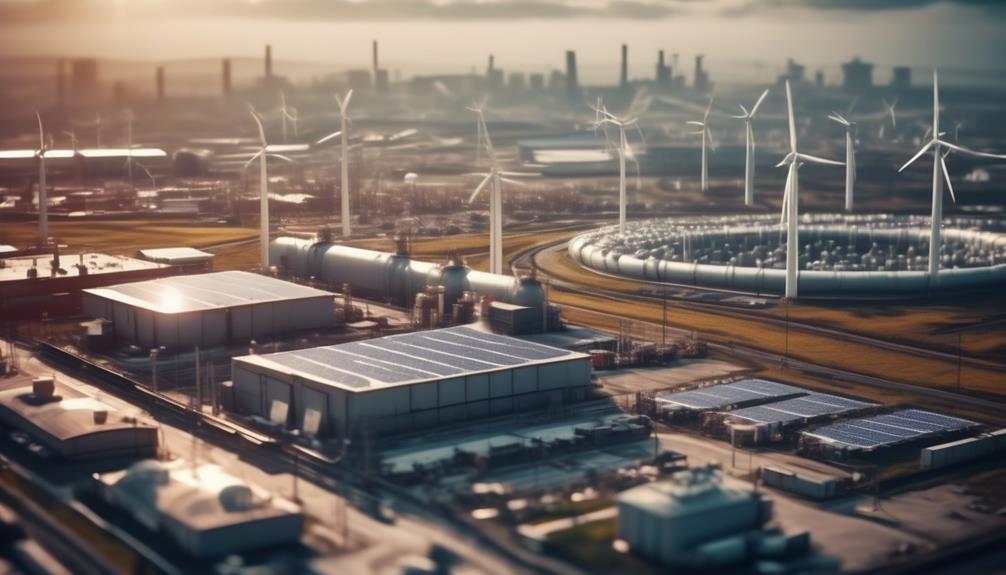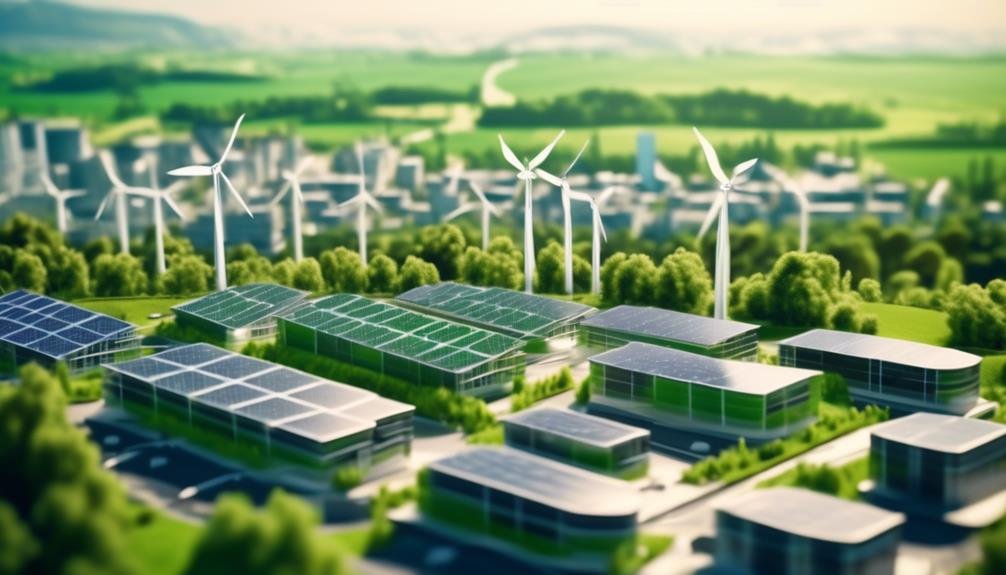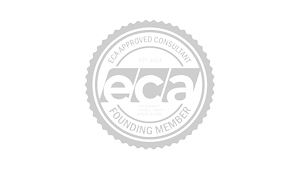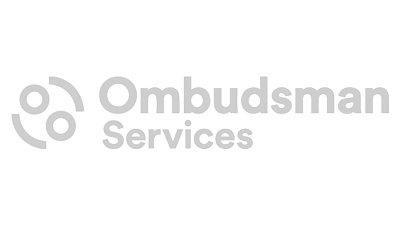In the dynamic realm of today’s business environment, leaders and decision-makers are constantly on the lookout for strategies to enhance energy efficiency. This pursuit is not just a matter of compliance or cost reduction; it reflects a deeper commitment to sustainability and the long-term prosperity of their enterprises.
Navigating the challenges of energy management and optimisation requires not only a keen understanding of the current landscape but also an anticipation of future trends and technologies.
The journey toward energy efficiency is fraught with obstacles, from the initial identification of areas for improvement to the implementation of sustainable practices and innovative solutions. With an intricate knowledge of these challenges and a rich background in navigating them, this discussion aims to serve as a beacon for businesses striving for efficiency and sustainability.
By delving into the multifaceted drivers of energy efficiency, we invite our readers on a journey of discovery and transformation, promising insights that will not only illuminate the path forward but also empower them to take decisive action.
Let’s explore together how your business can turn its energy efficiency aspirations into tangible achievements, inviting you to read on for strategies and solutions that resonate with your goals and challenges.
The Importance of Energy Audits
How can businesses ensure they are maximising their energy efficiency and cost savings? The answer lies in the crucial step of performing an energy audit.
Energy audits are essential for businesses to prioritise energy efficiency, sustainability, and cost-effectiveness. By conducting a thorough energy audit, businesses can identify current energy issues, assess their energy usage patterns, and uncover opportunities for improvement.
This analytical approach allows businesses to make informed decisions about investing in energy efficiency measures, including upgrading lighting systems, implementing renewable energy options, and complying with regulations. Moreover, energy audits provide a baseline for improvements in energy efficiency, helping businesses create a strategic efficiency plan tailored to their specific needs.
Focusing on energy audits not only supports businesses in saving money but also contributes to reducing emissions, demonstrating a commitment to sustainability. By taking control of their energy usage through energy audits, businesses can engage employees in energy-saving initiatives and demonstrate corporate responsibility.
Expertise and support are available to guide businesses through the process of energy audits, empowering them to make informed choices that drive their energy efficiency forward on the path to net zero.
Key Factors in Energy Management
Embracing energy management is a critical step for businesses seeking to optimise their operations and drive sustainable cost savings. Prioritising energy efficiency not only helps businesses reduce costs but also aligns with sustainable practices, positioning them as responsible corporate citizens.
Optimising energy consumption involves investing in energy efficiency, embracing renewable energy sources, and adhering to regulations. Businesses can start by making a comprehensive efficiency plan that includes a baseline assessment through energy audits and gaining employee buy-in. Immediate tweaks, such as conducting a lighting audit and retrofitting to LED lighting, can lead to significant energy savings. Small businesses can further benefit from researching and utilising energy incentives and rebates to reduce the cost of energy-saving projects.
Overcoming barriers to energy efficiency involves leveraging available products, programmes, and services. By creating and implementing a strategic energy management plan, businesses can effectively navigate the complexities of energy efficiency and drive sustainable cost savings while staying competitive in the market.
Implementing Energy-Efficient Technologies
Implementing energy-efficient technologies in business operations is a strategic imperative for driving cost savings and aligning with sustainability objectives. To achieve this, businesses should start by evaluating their current energy usage to identify areas for improvement. Retrofitting to energy-efficient lighting systems, such as LED, offers a substantial opportunity to reduce electricity consumption.
It’s also essential to explore available incentives and rebates for implementing energy-efficient technologies. Developing a comprehensive energy efficiency plan, encompassing both short-term tweaks and long-term strategies, is crucial for sustained success in reducing energy use and promoting energy conservation.
Moreover, businesses should consider collaborating with energy suppliers that offer renewable energy options to align with sustainability goals. Smart building technologies can also play a pivotal role in energy management, offering innovative solutions to reduce utility usage.
Employee Engagement for Energy Efficiency
To further advance energy efficiency within business operations, harnessing the collective engagement of employees in sustainability initiatives is paramount. Employee buy-in is crucial for driving energy efficiency initiatives forward.
Businesses can make sure to reduce their carbon footprint and meet imposing stricter regulations by involving employees in energy-saving practices. Employees play a key role in embracing energy efficiency and can contribute significantly to reducing their energy consumption.
Engaging employees in sustainability efforts not only fosters a culture of energy conservation but also attracts environmentally conscious consumers. By empowering employees to take ownership of energy efficiency through training and involvement in decision-making processes, businesses can tap into a valuable resource for innovative ideas and practical solutions.
Recognising and rewarding employees for their contributions to energy-saving initiatives can further motivate them to actively participate in driving energy efficiency within the organisation.
Monitoring and Measuring Energy Performance
Monitoring and measuring energy performance is a critical aspect of optimising operational efficiency and identifying opportunities for sustainable energy conservation. Businesses can leverage the following strategies to effectively monitor and measure energy performance:
- Regular monitoring: Track energy consumption patterns to identify fluctuations and areas of high usage, enabling proactive interventions.
- Setting benchmarks and goals: Measuring energy performance helps establish baseline metrics and realistic targets for improvement, fostering a culture of continuous energy efficiency enhancement.
- Identifying areas of inefficiency: Through comprehensive measurement, businesses can pinpoint specific areas where energy is being wasted and prioritise initiatives to address these inefficiencies.
- Informed decision-making: Tracking and analysing energy data empowers businesses to make data-driven decisions, enabling them to optimise energy usage and minimise waste effectively.




